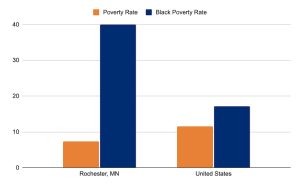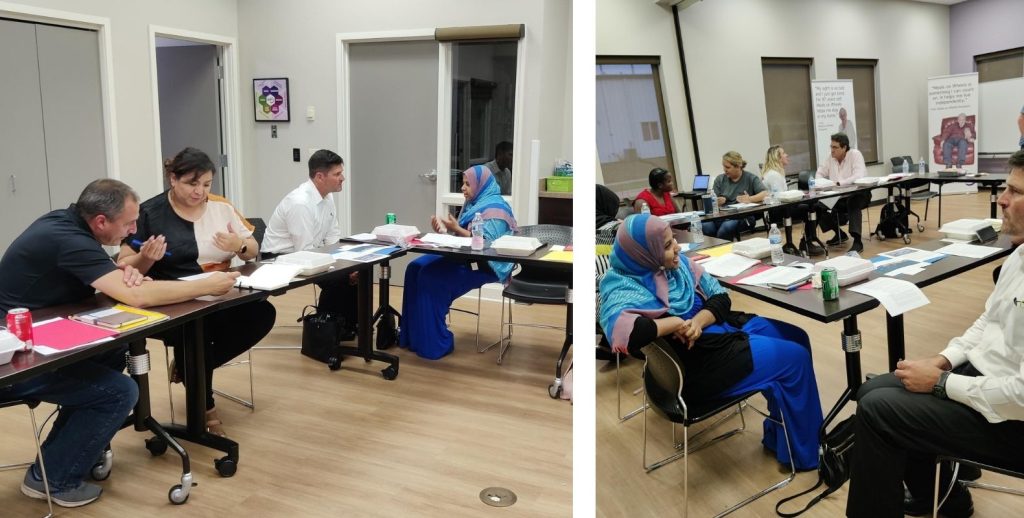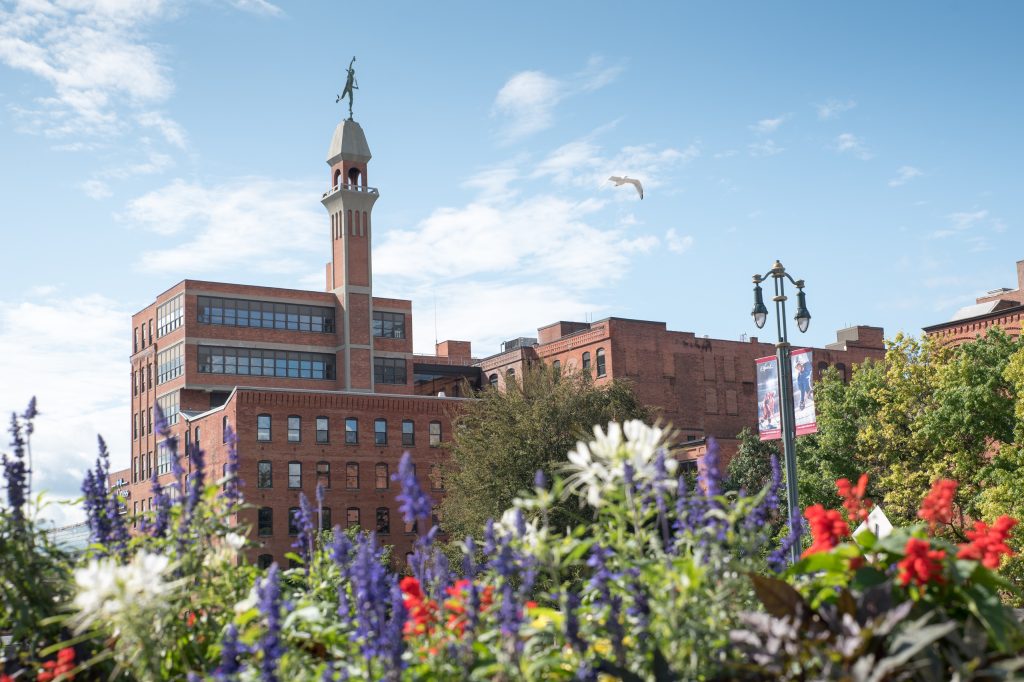Rochester, Minnesota, USA
Breaking Down Barriers to Build a Diverse Workforce.
Project Type:
Community Engagement, Finance, Health and Wellbeing, Infrastructure, Public Safety, Transportation
At a Glance
Among 631 entries from around the globe, Rochester was one of only 15 cities to be awarded a $1 million grant from Bloomberg Philanthropies’ Mayors Challenge in 2021.
Established Equity in the Built Environment, a flagship program to increase workforce participation for women of color in built environment industries
Overall, Rochester, MN’s poverty rate is part success story, part call for action. The city’s 7.4% poverty rate is well below the national average of 11.5%. But equity is top of mind for city leaders, and when they dug deeper to examine who in their community are struggling, they found an alarming disparity. Four in ten Black Rochester residents live in poverty—far above the citywide rate and more than double the national poverty rate for Black Americans. City leaders recognized addressing such a large disparity required a new way of thinking and fundamental changes.
In 2020 the City of Rochester named Chao Mwatela as the first Diversity, Equity and Inclusion Director. Instead of coming in with a laundry list of action items, she began by identifying potential priority areas using disaggregated data. Then, Mwatela focused on building relationships and listening. She spent time learning about past equity efforts and made recommendations based on what she heard from residents, City staff, and community organizations. A consensus emerged that in order to create a more equitable Rochester, intentional engagement of the community members most impacted should take priority—this practice is a critical component of WWC Certification.

Also in 2020, the City participated in the Bloomberg Global Mayor’s Challenge which asked cities to identify new solutions for a persistent problem in their city. Rochester identified a problem and an opportunity – inequitable access for women of color to well-paying built environment careers. Nationally, women occupy about one in 10 construction jobs. In Southeast Minnesota, women of color are employed in less than 2% of built environment careers yet represent 13% of the population. As home to the renowned Mayo Clinic, Rochester is undertaking a $5.6 billion public-private economic development plan to elevate the city and solidify its standing, globally, as a leader in healthcare and medical research. Community groups, City leaders, and DMC stakeholders recognized that intentional growth should prioritize equitable results, so everyone in the community benefits. One opportunity, made clear by the data, is for Rochester to recruit more women of color in built environment careers to meet these ambitious construction plans.
Together–using a co-design methodology–women of color and built environment professionals, along with representatives from Rochester Schools, Workforce Development Inc, and the City of Rochester created the Equity in the Built Environment program.
The program includes:
- K-12 career exploration,
- Training and mentorship for women of color,
- Inclusive Workplace Employer (I/WE) designation for built environment employers hiring from the program, and
- Entrepreneurship support for women of color starting a built environment business.

Their efforts have been recognized. In 2021, Rochester was one of 15 global cities to receive a $1 million grant as part of the Bloomberg Philanthropies Mayors Challenge. Their award is focused on building a system that creates access to women of color into built environment careers. This system consists of education, workforce development, trades unions, and private employer partners all working in collaboration to ensure success for women of color. As of January 2024:
-
Four commercial construction companies earning their Inclusive Workplace Employer designation.
-
Thirteen women involved in built environment training or entrepreneurship .
-
Over one hundred 11th grade students were exposed to built environment careers through experiential learning economics curriculum.
-
A built environment framework now supports women of color on their chosen career path from training to employment and beyond.
More than anything, Rochester’s data story is about using data to see innovative ways to solve problems and create opportunities. It’s about economic growth being a benefit for all residents and a catalyst for equity. While the program is early in the implementation phase, it’s poised for success. By developing solutions with residents, the City has used data to create pathways to high-paying careers, enhancing economic mobility for historically marginalized communities.
“Aggregate data is meaningful, but does not tell us the stories and experiences of specific communities – those most impacted in our communities. It is imperative that we disaggregate data to understand impacts to specific groups and communities.”
“What Works Cities Certification shows the community that our staff are not only trained and certified in the use of data, but that we’re actually using data to make progress and being recognized for it. In a time of widespread distrust of government, having What Works Cities Certification is a chance to increase trust in government.”
